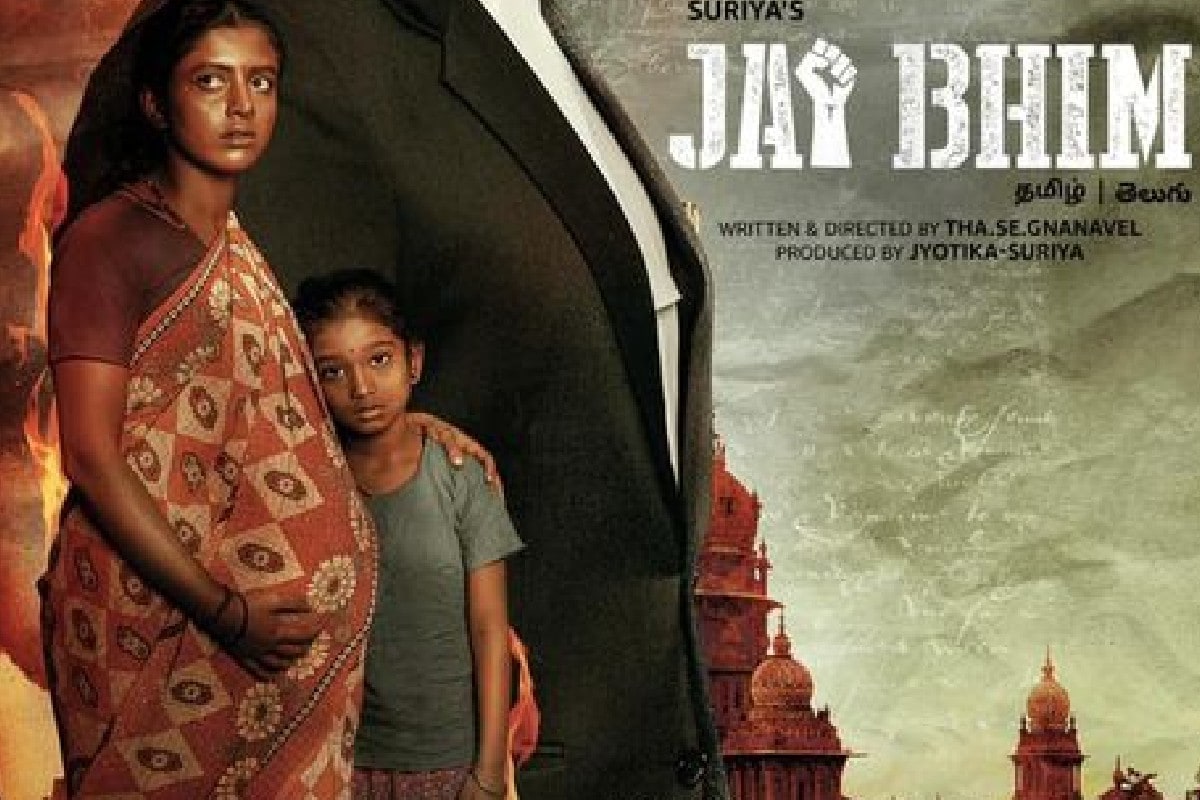Trial by Media (6-episodes, Documentary; 2020)
Netflix
 There was a time when jury members were told to abstain from consuming news from the newspaper, radio or TV to not influence their decisions. These days, however, this is no longer possible. One does not consume news; news consumes you. One can run, but he cannot hide; information finds you through every crack of the system; smart devices being the easiest.
There was a time when jury members were told to abstain from consuming news from the newspaper, radio or TV to not influence their decisions. These days, however, this is no longer possible. One does not consume news; news consumes you. One can run, but he cannot hide; information finds you through every crack of the system; smart devices being the easiest.
Just look at how everyone has an opinion on how Covid should be managed. Everybody is cocksure where it came from, which drugs are effective and how effective vaccinations are.
In the post-truth world, it seems that every individual forms an opinion on everything based on the validation they get online. Birds of the same feather flock together to steamroll their agenda. We can see how particular narratives are just gate-crashed, no matter the actual situation at the ground level. The confusing situation in Afghanistan that the country is left in is testimony to this. Then there is the ever confusing ground situation in India, a country surrounded by vultures waiting to pounce upon and destroy the biggest democracy of the world.
 |
| Jonathan Schmitz |
This six-episode documentary tries to determine how media, the mainstream media, influences public opinion, perhaps the judicial system and its verdicts. At the end of all shows, viewers do not get answers to this, but they do get a rough idea of how media uses these cases to stir interest amongst the people. In some cases, the accused used the media to portray his squeaky clean image of themselves. The press has also moved into the courts via Court TV.
The first episode is about the unscrupulous nature of TV, specifically Trash TV. Programmes like 'The Jerry Springer Show', 'Jeremy Kyle', 'Keeping up with the Kardashians' will be a few examples of these. In 1995, during 'The Jenny Jones Show', a neighbour, Scott Amedure, expressed his gay crush to Jonathan Schmitz. Jonathan had thought that another neighbour, a lady who invited him to the show, was going to confess her love. The whole faux pas was quite embarrassing to Jonathan. He took it in good spirits at that time, but Jonathan shot him dead with a shotgun the next day.
Jonathan was charged and convicted for second-degree murder, and, guess what, the whole court debacle was screened live on 'Court TV'. Coincidentally, or perhaps not coincidentally, both 'Court TV' shows and 'The Jenny Jones Show' were owned by the parent company, Warner Brothers (WB). So WB had it good both ways, benefiting from the murder and filming the trial as well.
The victim's family, the Amedure, decided to sue the TV producers for recklessness and negligence. However, the TV company got away scot-free after an appeal to the grieving family's initial compensation award.
 |
| Bernard Goetz |
The following case piqued the interest of the Nation again. In 1984, in the notorious crime-rich New York, a subway commuter, Bernard Goetz, shot four black boys in a subway rail. The shooter alleged it was in self-defence after being mugged. That incident sparked fueled a nationwide debate about safety on the streets of New York and other US cities generally. Goetz's case started vigilante groups that patrolled the streets to prevent urban crimes. The question of legal limits of self-defence was discussed. Is it alright to shoot once or twice to protect oneself? The NRA then worked on loosening gun laws in New York for protection. A quadriplegic victim even pressed a civil suit against Goetz for damages and was awarded $43million. Goetz was declared bankrupt.
Crime in New York saw a decline in the 1990s with new mayors and massive cleaning of the police department. It did come at a cost. Stringent policing meant there were that there was the occasional collateral damage.
 |
| Amadou Diallo |
In 1999, an African immigrant, a 23-year-old Guinean named Amadou Diallo, was shot 41 times by four New York plainclothes policemen in The Bronx. He was unarmed, with no criminal record and had come to the USA to taste a little bite at the Big Apple. Sadly he was shot down like a rabid dog. This spurred the talk of racial profiling and discrimination. Diallo's mother flew down and, together with civil rights icons like Al Sharpton, kicked up a big storm to seek justice. Sadly, nothing happened. The trial was held at a primarily different white county and mostly white juries to acquit the accused.
 |
| Richard Scrushy |
Richard Scrushy developed a world-class healthcare company from scratch in the backwaters of Birmingham, Alabama and made it to the Fortune 500. Before long, he was accused of money laundering, racketeering, money laundering, etcetera. About this time, he started an evangelical TV and went into a full religious mode. Interestingly he was active in the black Church. It is said his idea was to influence the local papers and juries to return a favourable result in his complicated and retracted court cases.
The following case is another new milestone for the media. It was the first time a rape trial was televised. Even though they had made some ground rules on maintaining the victim's anonymity and the sensitivities of the times, all hell broke loose when it came to execution. The victim's name was mentioned in full when the charge sheet was read, making the camera hound down at the victim's family home. In 1983, Cheryl Araujo, 21, a mother of two, stopped at a local bar in New Bedford, Massachusetts, to buy a pack of cigarettes when she was raped by four and witnessed by others who never stopped the crime.
The case began a national debate. As the accused were of Portuguese immigrants, there was an enormous backlash to the established fishing community of Portuguese descent. They were charged with harbouring illegal immigrants. The victim was also put on trial by the media. Her behaviour and morals were questioned. Victim blaming was apparent. It challenged the place of media in protecting personal privacy, finding newsworthiness and press freedom. The accused spent time in prison. The whole humiliation left Aroujo a wreck. She left for Miami but died at the age of 25 in a motor vehicle accident.
 |
| Rod Blagojevich |
Rod Blagojevich is a second-generation Yugoslavian who climbed swiftly, with the support of his wife's political family background, to become Illinois Governor in 2002. Soon into the second reelection, he was accused of selling a Senate seat. He was impeached and was indicted by a federal grand jury. All through in between his trials and appeals, he was appearing on TV, expressing his views and basically leading the public perception in his favour. Even after his indictment, he pleaded his case on Fox TV. Surprise, surprise, Fox TV, which is said to be a Republic Party mouthpiece, tweaked the interest of President Trump to offer a Presidential pardon. Coincidentally, before Blagojevich's appointment to Governorship, he had appeared in Trump's 'The Apprentice'. It goes without saying that it is nice to have friends in high places, and it is invaluable to have the media on your side, especially when you are in trouble.


































